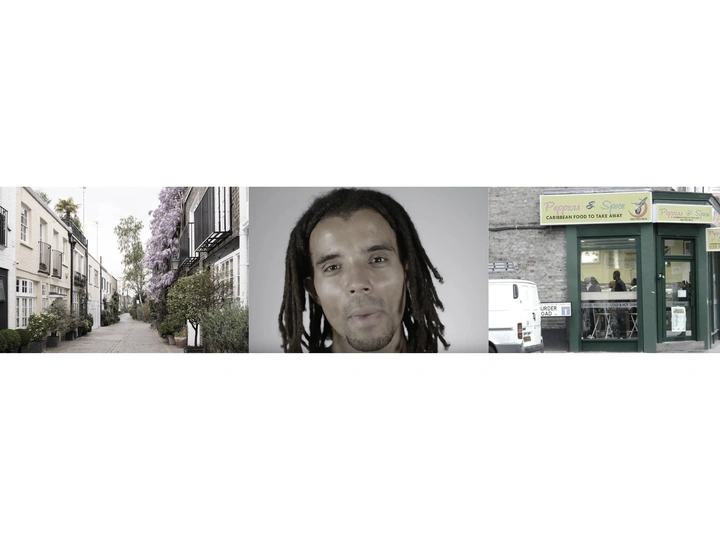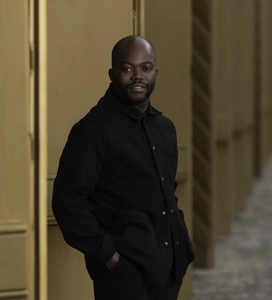Migration & the urbanism of assimilation

Ewa Effiom is a London-based Belgo-Nigerian architect, writer and producer. He is a practising architect having worked in London and Manchester and was a member of the Architecture Foundation’s New Architecture Writers’ second cohort. Mythology, collective identity, popular culture and their inextricable links to the built environment are recurring themes in his work with a focus on the mythology and folklore that different subcultures instate and associated to space. He has been published in the Architect’s Newspaper, the AJ, ICON, Wallpaper, Frame, OnOffice, Architecture Aujourd'hui, the Modern House magazine, A Daily Dose and Ex Libris and came second place in the Tallinn Architecture Biennale’s 2021 Curatorial Competition with a proposal entitled Adaptive Re-use. His film Eagle Mansion was premiered at the 2021 Urban Film Festival in Perth and screened at 2022 Melbourne Design Week. He was awarded the 2022 How To Residency at the Canadian Centre for Architecture entitled “How Not To Be A Developer” which is the year that his second film “Beck Road” screened at the Open City festival. After graduating he became an associate lecturer on the MA in Architecture + Urbanism at the Manchester School of Architecture, a post he held until 2022 and he is a visiting critic at the Estonian Institute of Technology and London Metropolitan University.
The Exhibition proposed is a film that acts as an exploration into the changing face of western vernaculars by shunning the antiquated notion of what a European vernacular constitutes. The three-channel film which will show the established symbology associated with major Western cities like, Brussels, London, Paris, Berlin and Rzeszow, with the changing faces of their inhabitants along with the architecture of assimilation they incite.
By juxtaposing these three images it investigates the connections between architecture, culture, migration, the environment and belonging. Touching on Bourdieu’s concept of habitus, and the ephemeral nature of cultural capital, it uses migrants as a vehicle to illustrate the veneer that is regionalism and put to question understandings of identity and its fundamental association to the built environment.
Migration is not a random event, it’s a result of government or individual action, which is often the result of the capitalist urge to exploit. With the exacerbation of the climate crisis the idea of localism should come to question as the global north, which is the majority stakeholder in the Anthropocene, now reaps the consequences of the excesses of the industrial revolution.
The transitory urban and architectural condition and their societal and political implications that are a result of these excesses are becoming ever more present. As demographics, voire society, changes, divisiveness ensures along with crises of traditional politics, spurring on far-right movements that revert to xenophobia and at times borders on the racist, all in an attempt to safeguard an antiquated idea of nationality, a relic of a pre-globalist world.
The Migration & The Urbanism Of Assimilation seeks to redress the idea of western vernacular architecture and urbanism to bring to the fore a new understanding of what it means to be of a certain place in an attempt to paint a more accurate picture of what the European vernacular is.
